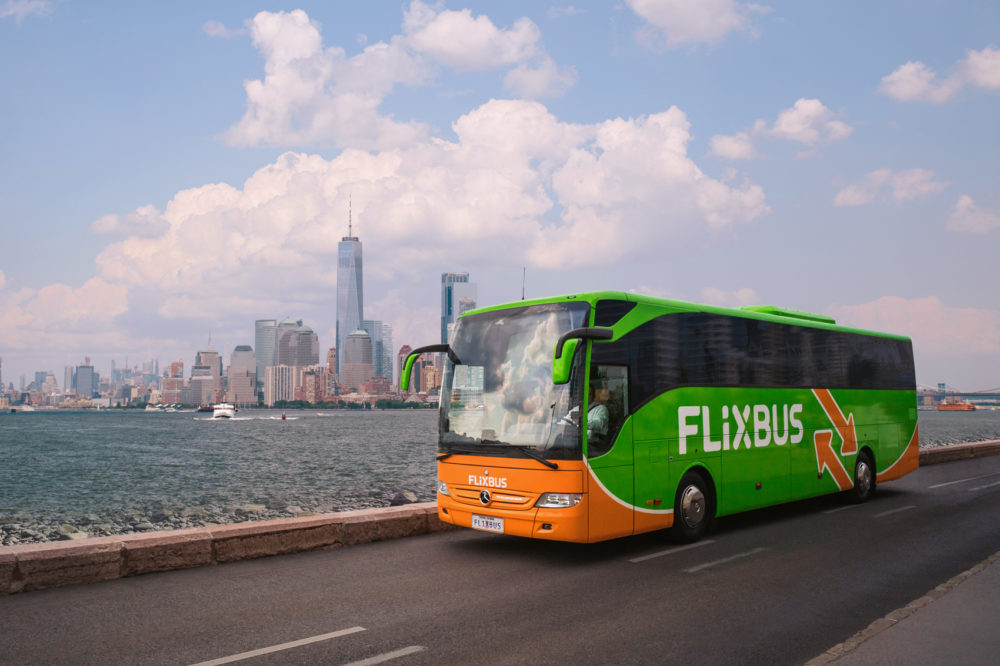Advertisement
Competition In Boston-New York Bus Service About To Speed Up

The biggest name in European bus travel is making a stop in Greater Boston. Two, actually. Starting on Thursday, Flixbus will provide daily bus service to New York City from Boston's South End and Tufts University.
Tickets will start at $5, but prices will likely go up after an introductory period. How much depends on factors such as the date and demand.
Originally founded in Germany, Flixbus is just the latest contender in an intensifying turf war between bus companies serving New England. The region has recently become a “hot-bed of activity,” according to a 2019 report by the Chaddick Institute for Metropolitan Development at DePaul University, examining the growth of the intercity bus industry in the United States.
“This is gonna be a dogfight,” said Joseph Schwieterman, director of the institute and co-author of the report. “Much of the traffic on [Flixbus] will be taken from other carriers who aren’t inclined to lay down and watch it happen without a fight.”
With its new Boston to New York route, Flixbus joins one of the most competitive bus markets in the U.S., Schwieterman said. Between 2018 and 2019, companies including CoachRun (part of Boston-based Sunshine Travel), and New York-based companies Catch-a-Ride and OurBus all added trips between the Boston area and New York.
Demand for bus travel has slowed in the past few years, in part because low fuel prices have made car and air travel more affordable. And yet, in regions like New England, demand is growing, although at a relatively modest pace.
Started in 2013 in Munich, Flixbus has expanded quickly to become Europe's largest long-distance bus network with service in 28 countries. The company landed in the U.S. in 2018, and has since added routes in a dozen states.
Unlike many of its competitors, Flixbus doesn't actually own buses. It uses apps to sell tickets and collect data while contracting with local companies to operate and maintain the buses. (According to a Flixbus spokesperson, the local partners for the new Boston to NYC route are BMJ Trans Inc., Star Tag Inc. and Union Tour Express Inc.)
It’s not an entirely new model, says Schwieterman, though Flixbus’s execution and marketing might be “flashier” than what has come before.
The company’s rapid U.S. expansion is shaking up an industry that has been in a sort of “hangover” since about 2014. Before that, the bus industry had seen massive growth thanks to brands like BoltBus and Megabus, which lured in early-bird customers with $1 fares.
In order to get a piece of the market, Schwieterman said, Flixbus is going to compete aggressively on price with those now-established players.
“It may even mean eventually some service cuts by other bus lines," Schwieterman said, "because there's only so much traffic to go around.”
This post has been updated to reflect that OurBus added a Boston to New York route in 2019.
This article was originally published on September 26, 2019.
